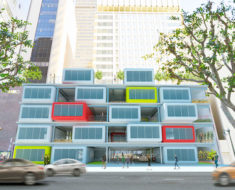Microsoft has announced a new augmented reality (AR) project that combines digital elements with the real world. As reported by Tech Radar, project Zanzibar involves the use of an electronic mat with multi-touch sensors that projects data onto a display device.
Microsoft’s Zanzibar mat is equipped with near-field communication (NCF) hardware, which is the same technology found in many modern-day smartphones and tablet computers. With NFC, the mat can transmit data wirelessly to a nearby display device, eliminating the need for cords and cables. It also features a capacitive touch-sensing technology. Not to be confused with resistive touch-sensing technology, capacitive only registers touch from actual physical contact with an electrically charged surface, such as your finger. When you touch a capacitive device like the Zanzibar mat, it sends a small electrical charge from your body to the device, thus allowing it to identify the precise point of contact.
When speaking about the project, Microsoft said Zanzibar could be used to create kid-friendly AR games. Kids could play with toys on the mat, for example, which projects the toys as a digital image onto a nearby display device. The Zanzibar mat can identify the type of toy as well as its respective location.
In recent years, many children have become accustomed to playing games on computers, smartphones and tablet computers. Project Zanzibar encourages kids to continue using the devices but in conjunction with physical objects as well. In turn, this could help children develop proper hand-eye coordination skills.
Some people assume that virtual reality (VR) is the same as AR, but this isn’t necessarily true. VR is a completely virtual environment with no real world elements. In comparison, AR merges real world and virtual elements.
Of course, there are similar toys already on the market. The kid-friendly video game “Skylanders,” for instance, features physical toys that are projected into the video game.
Unfortunately, Microsoft is still in the early stages of developing Zanzibar, so there’s no telling when or even if it will be released to the public. Nonetheless, it certainly poses some exciting new opportunities. With its ability to merge real world and virtual elements into kid-friendly games, project Zanzibar could one day to revolutionize the toy market.
Dil Bole Oberoi





